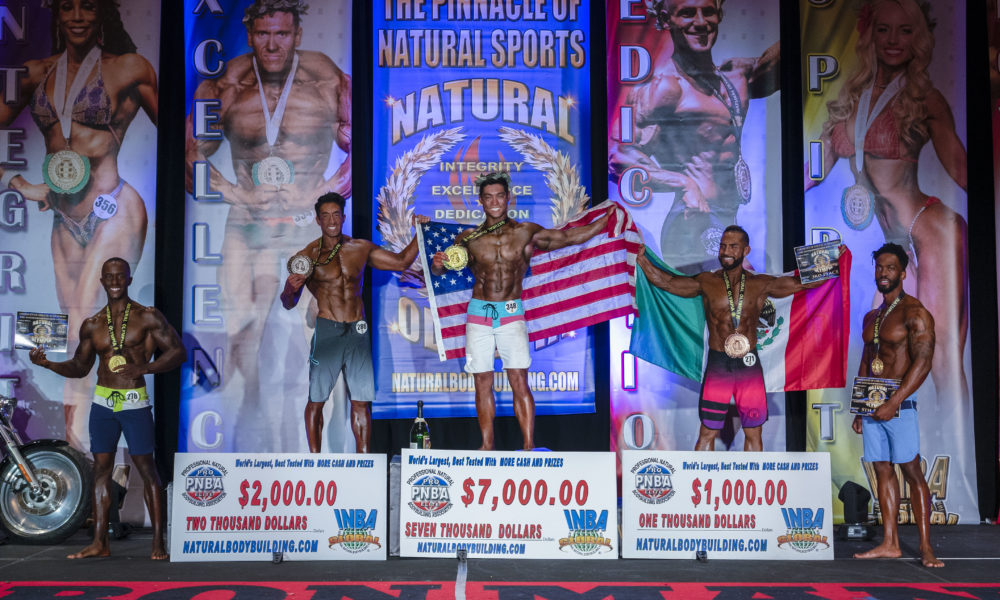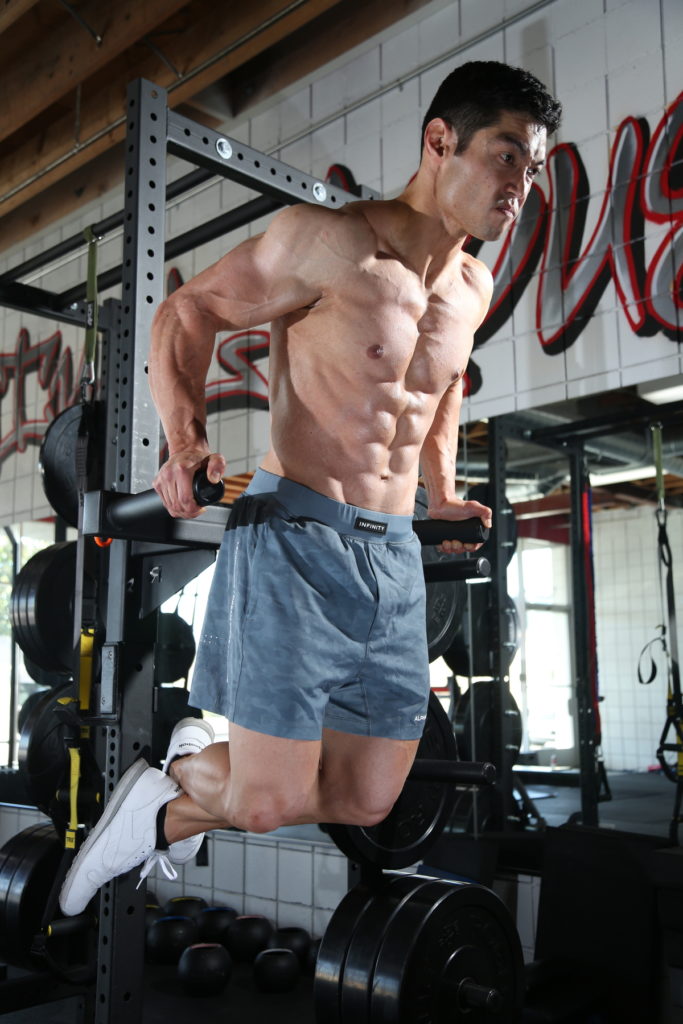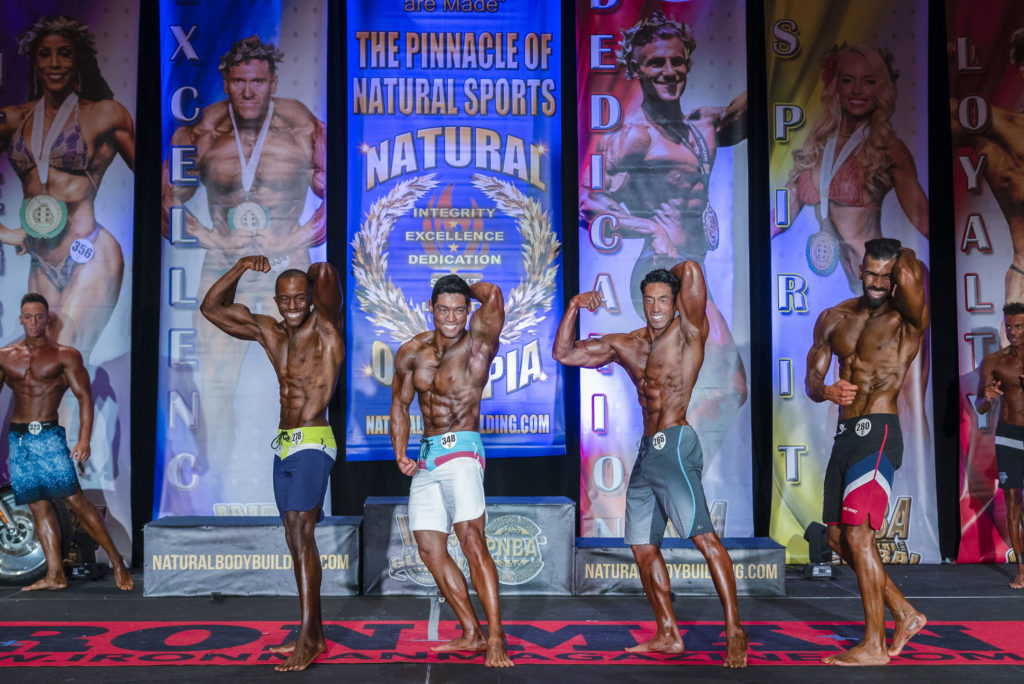- Messages
- 2,405
- Reaction score
- 1,431
- Points
- 113

It’s finally here, the off-season. No more starving for single-digit body fat. It’s time to throw on my favorite hoodie and sweatpants and pursue a career in Mukbang. Well, ok. Not just yet. Before diving down that delicious rocky road, I have to ask myself “Do I want to be better?” Of course, I do. I don’t just want to be better. I want to be the best. I go ahead and cancel the extra-large meat lover’s pizza with a side order of wings and cheesy bread and start developing a plan for a productive off-season. So, what do I, a 3-time Natural Olympia champion, do in the off-season? How do I continue to remain competitive year after year? Well, it’s a lot less complicated than one may think. I will go over my own off-season strategy and explain the importance of taking time off, the changes I make to my diet, and how my training differs from when I’m preparing for a competition.
TAKING TIME OFF
I am a firm believer in the benefits of taking a significant period of time off from competing. It is not time off from training or from dieting. Time off is an opportunity to improve. It is time to improve on weaknesses that were exposed when on stage. Starting my off-season, I take the time to examine what areas I need to improve upon. I may find that a specific body part needs to increase in size or that I need to build more muscle mass overall. I may also need to work on my posing. All of that takes time and careful planning. The more time I allow the better. Being a lifetime natural competitor, I do not have the advantage of being able to make any significant improvements to my physique in a few short months that competitors taking performance-enhancing drugs do. Let alone the fact that contest prep has a negative impact on hormones. Testosterone levels decline significantly, as much as 45%. I have had my own testosterone level checked at the end of contest preps and the numbers were all well below the normal or healthy range. It takes at least a few months, if not significantly longer, to bring hormones back up to within the healthy range. Healthy hormone levels are essential for optimal growth and development, so a short off-season that barely allows your hormones to regulate will put you at a major disadvantage. Yet I know many competitors that will only take a few months off before jumping right back into contest prep. Most of these competitors end up bringing the same physique to the stage year after year. I love competing but, I compete to win. If I want to make any noticeable improvements to my physique then I know I need to take at least a year off from competing. I would take several years off if I didn’t love to compete so much.DIET
When it comes to the off-season diet, the goal is to gain size and in order to do that, you have to eat more. Now, there are many ways to approach this. Some competitors may go right into a Reverse Diet immediately following a contest prep, where they will essentially bring their calories back up by going in the reverse of their contest diet. This method minimizes fat gain while gradually increasing calories. Reverse dieting can take a considerable amount of time, however. Basically, you are going to take just as much time as you had spent on your contest prep diet just to get back to your original maintenance calories. Another approach is to dirty bulk. This is the fun one. You basically eat what you want and as much of it as you want. There isn’t any real tracking of calories. Just consume a lot of food and hope for the best. Although a lot more relaxed and quite enjoyable, it isn’t the most ideal for lean growth. You will likely accumulate more body fat with this process. On the other end of the spectrum, you have the Clean Bulk. The Clean Bulk is keeping to what you ate during contest prep but just more of it. More chicken, rice, and broccoli, if you will. What I do is more of a combination of the three mentioned. I will gradually build my calorie intake up but, from the end of a contest diet, I will start my calories at maintenance for my current weight at that time and build from there. I will also keep to the foods that I ate during contest prep. It is a lifestyle for me so I am used to a structured diet. I will consume the same meals every day. It is just what I am used to. That being said, I do allow myself to be more relaxed on the diet in the off-season. I am not as strict with my diet as I am during contest prep. I allow myself to go out and enjoy meals with friends and family. I enjoy the occasional drink and will never turn down someone offering me a cookie. In fact, my competition season normally ends the weekend before Thanksgiving and you better believe I do not diet on that day. It’s ok. I believe being more relaxed with the diet in the off-season is not only beneficial physically but mentally as well. It’s good to not be consumed with dieting. Enjoy life. Don’t be so worried about being able to see your abs year-round. It is time to grow. Accept a little fat gain. That is what sweatpants and hoodies are for. The off-season also allows me to try and incorporate different foods. I may implement a different diet strategy to see if it will produce more ideal results. The off-season is the opportunity to do this. You do not want to be experimenting in the middle of contest prep.TRAINING

As with the diet, there are many different approaches one can take in regards to training in the off-season. I tend to stick to the same routine year-round. My routine does not change from off-season to pre-contest. I believe that what was used to build the muscle in the off-season is what is best to be used during contest prep in order to keep the muscle, if not continue to build. The only real change in training is dialing back on the amount of cardio I do. I’m trying to grow so I don’t need the cardio to burn off calories. Now, I have tried every training protocol out there from Push, Pull, Legs to Dorian Yates’ Blood and Guts but, the one training protocol that I enjoy doing and can consistently perform is the typical “Bro Split”. The “Bro Split” is training one body part per day. I enjoy focusing on one body part, hitting it from every angle, and blasting it with a lot of volume. My split is normally training five days per week. I will have a dedicated day to the chest, back, shoulders, legs, and arms. Again, my training remains the same from off-season to pre-contest. I will lift as heavy as I am able while keeping the intensity high. I am open-minded and will try out different training protocols. The off-season is the best time to do this. If you allow yourself the time then you may be able to try out different training protocols but, if what you have been doing is consistently producing results then there is no reason to change it. For areas that need more development, I will prioritize them by training them first and may even incorporate additional exercises to train those areas specifically. That’s it as far as training goes. Nothing unique or special. Just consistent hard work, day in and day out. Consistency is key. If you dedicate the time and put in the effort you will see results.
CONCLUSION
There you have it. That is what I, a 3x Natural Olympia champion, do in the off-season. It really doesn’t change much from what I do when preparing for a contest. I just eat more which allows me to train heavier and with greater intensity. I allow myself enough time to make noticeable improvements to my physique. I take the time necessary to reset my hormones and then additional time to actually benefit from having healthy hormone levels. I relax on my diet a bit to be able to enjoy life outside of competing, which I feel benefits me mentally as well as physically. I’m not caught up with having defined abs year-round. The best advice I can give you so that you may have the most effective off-season possible is to give yourself time. If you want to make noticeable improvements to your physique then take at least a year off from competing. Be patient. Stay consistent with your diet and training and watch yourself grow.
THE 5 PS OF SUCCESS–
Proper Preparation Prevents Poor Performance“Discipline is doing what you hate to do but nonetheless doing it like you love it.”-Mike Tyson
William J. Long “The OG”
ACE Certified Personal Trainer
2021 Multi-Media Contracted Athlete: Iron Man Magazine INBA PNBA Generation Iron
2021 Natural Olympia Professional Men’s Physique Champion
2019 PNBA/INBA Hall of Fame Inductee
2012, 2017 Natural Olympia Professional Men’s Physique Champion
2019 PNBA World Cup Champion
2019 PNBA Battle Against Cancer Champion
2016 PNBA Team USA Champion

